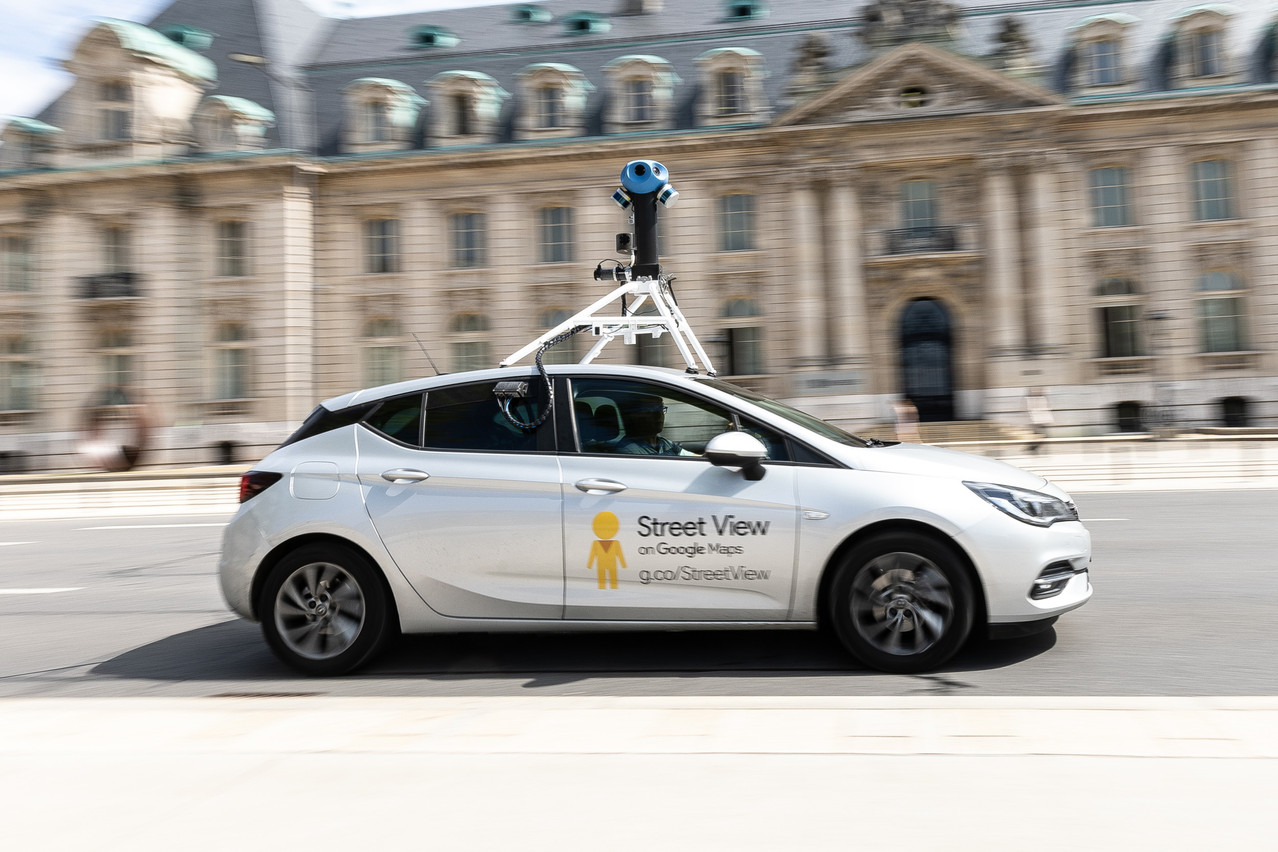At a time when everyone is swearing by the metaverse and its invitation to stay at home, Google continues to bank on the mobility of internet users even if, theoretically, Google Street View also allows users to visit a country from the comfort of their sofa.
15 years since its launch, 13 years since it photo-mapped the grand duchy, a white Opel Astra is traversing the country and recording tens of millions of photographs. These are stored in a hard drive in the back of the vehicle and sent to the American giant's data centres on the European continent.
The images, taken by seven satellite-controlled cameras on a tripod on the vehicle’s roof will be available in the last quarter of 2022 and will make it possible to update 90 to 95% of the country. Google Street View is also enriching its own data with two ultra-high-definition cameras that can clearly record street numbers, shop signs and even opening hours. Two lidars even take very precise measurements of the distance to buildings or houses.
The virtuous (and slower) route arrives
"But no faces, no number plates or personal data," says Michiel Sallaets, director of communications at Google Belux, who met the media in Luxembourg on Thursday. "Since the beginning, it has even been possible to request and obtain that one's home be scrambled," he said, echoing what the CNPD had stated in early July.

Google Belux communications director Michiel Sallaets. (Photo: Guy Wolff/Maison Moderne)
Google has already launched its new EcoRoads feature in the US to offer users a greener route than the fastest route in terms of fuel consumption or CO2 emissions. This alternative is starting to be deployed in Europe, according to our information, and France announced a decree last week to prevent these "guidance" applications from sending everyone to alternative routes, even if it means clogging up residential areas.
Google Street View is one of Google's three "Geo" services, along with Google Maps, which allows for advertising and is based on public data, and Google Earth, which relies on data purchased from satellite operators or in the public domain. Google also owns Waze, the increasingly popular application that takes its data from Google Maps and other public sources.
This article was first published in and has been translated by Delano.
